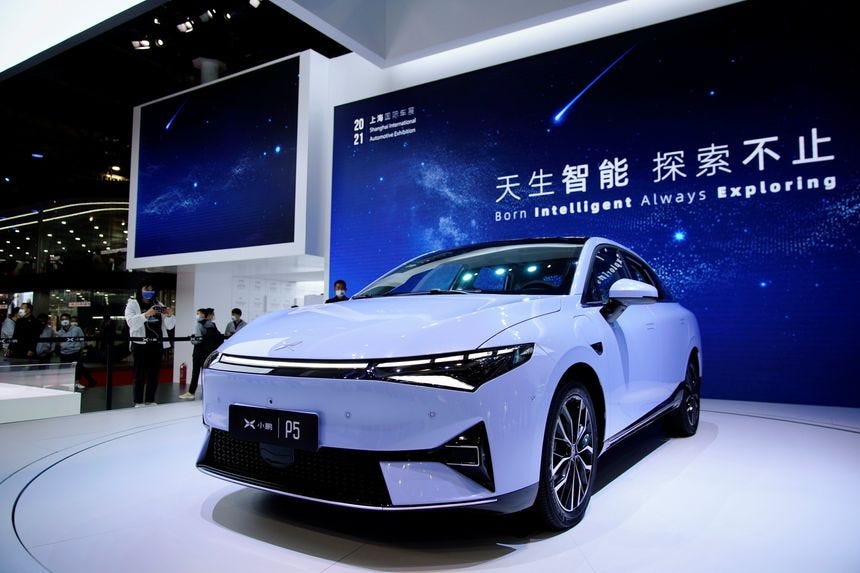The Energy Absurdity of the Week: China Isn't Cooperating with US/EU Energy Transition Plans
A pair of articles sent to me this morning by a very astute reader show that, while the US and EU are busily entering into a “clean” energy subsidy war with one another, the communist government in China continues to deploy its Belt & Road plans to obtain dominant positions in markets around the world.
[Follow me on Twitter at @EnergyAbsurdity]
First, there is a report from FleetEurope.com about inroads China is making into the European EV market titled “Chinese dominance in the European EV market: Is it happening?”
Well, yes, yes it is, according the author of the story.
Here’s an excerpt:
While the price tag of European EVs is rising, government-supported Chinese brands are preparing to test the resilience of Europe’s giants with their much cheaper cars.
“The market is wide open to the Chinese”. These were the words of Stellantis chief executive Carlos Tavares at last year’s Paris Motor Show, signaling an upcoming storm.
From big players in the Chinese electric vehicle (EV) market to start-ups, Chinese companies are now flocking to Europe, trying to meet the expectations of European customers at most. Looking at some statistics, the increasing flow of EVs from China to Europe is not surprising:
EV sales tripled in China in 2021, reaching 3.3 million, while in Europe, sales hit 2.3 million, according to the International Energy Association (IEA). Europe and China represented over 85% of the global EV sales in 2021, says IAE. Of the two, China is slowly but steadily turning into Europe’s new energy vehicle (NEV) supplier, while Europe is trying to shake its giants to avoid losing ground. But the latter might be problematic for Europe, while China has already launched an all-out investment strategy.
…
For instance, BYD, planning to sell four million vehicles globally in 2023, unveiled the price of the Atto 3 at €38,000, while Han and Tang EV models start at 72,000. On the other hand, Great Wall’s Funky Cat model will sell at around 32,000 pounds (€41,500), around 5,000 pounds (€5,700 ) cheaper than Volkswagen ID.4 in the UK, according to Reuters.
Talking to Reuters at the CES convention, CEO Patrick Koller says, “Europe wouldn’t be able to stop the inflow of good Chinese vehicles.” The vehicles are not just good but affordable: According to vehicle supplier company Forvia, a Chinese EV is around €10,000 cheaper than a European EV.
[End]
Basically, China is moving into the EU market with quality cars priced well below the local competitors. This is not surprising, given the massive advantages China has with economies of scale, and its dominance in the processing of and supply chains for lithium, copper and other critical minerals required by EVs and their batteries.
The only wonder is that anyone in Europe is surprised by this.
Keep reading with a 7-day free trial
Subscribe to Energy Transition Absurdities to keep reading this post and get 7 days of free access to the full post archives.





